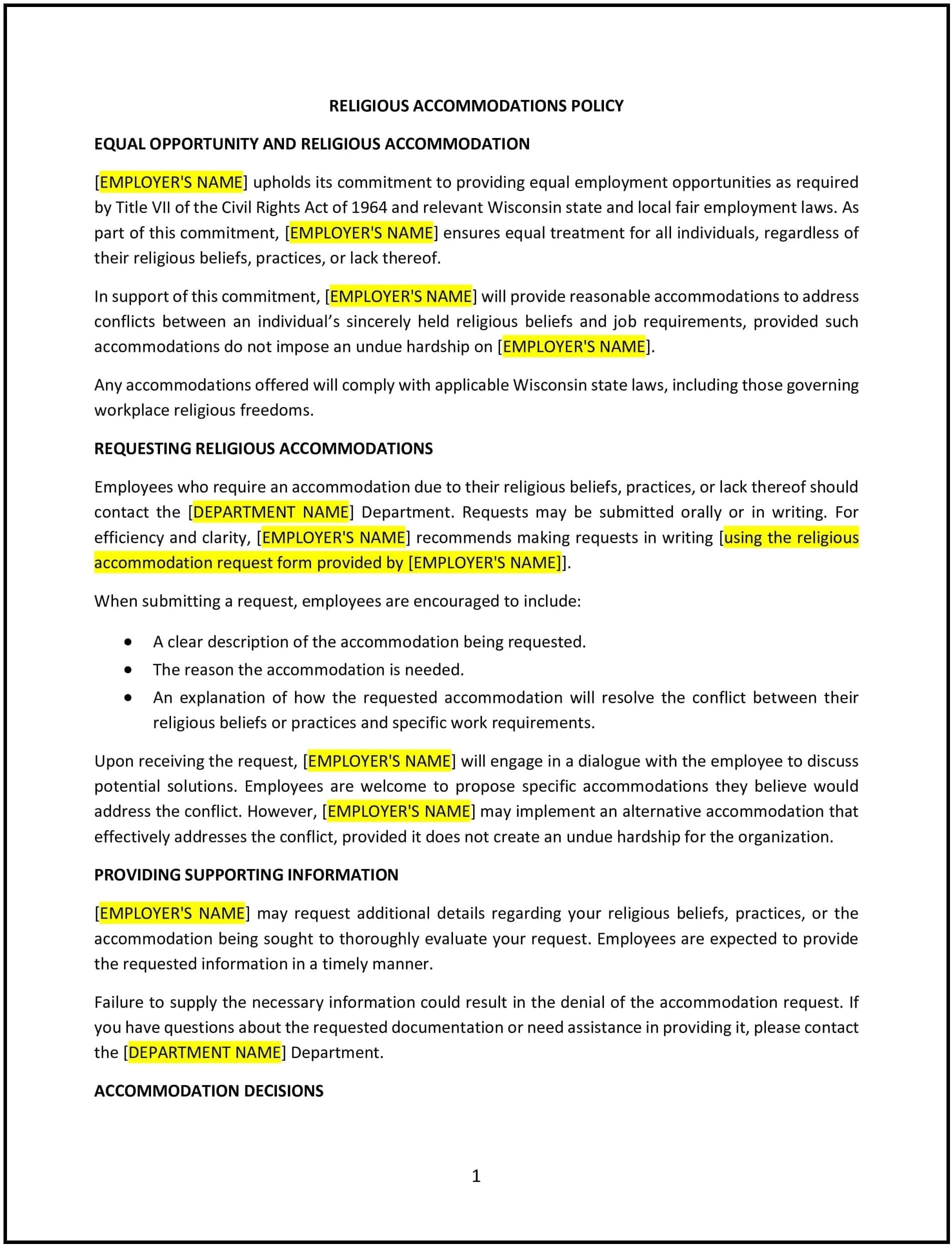Religious accommodations policy (Wisconsin): Free template
Got contracts to review? While you're here for policies, let Cobrief make contract review effortless—start your free review now.

Customize this template for free
Religious accommodations policy (Wisconsin)
In Wisconsin, a religious accommodations policy ensures that businesses respect employees’ religious beliefs and practices while maintaining compliance with state and federal laws. This policy fosters an inclusive workplace by providing reasonable accommodations for employees’ religious observances, attire, or practices unless doing so would create an undue hardship for the employer.
This policy outlines the process for requesting accommodations, the employer's responsibilities, and guidelines for balancing employee needs with business operations.
How to use this religious accommodations policy (Wisconsin)
- Define reasonable accommodations: Clearly explain what constitutes a religious accommodation, such as flexible scheduling, dress code adjustments, or modifications to work practices.
- Outline the request process: Provide employees with a clear process for submitting accommodation requests, including whom to contact and what documentation may be required.
- Evaluate requests fairly: Establish guidelines for evaluating accommodation requests based on their reasonableness and potential impact on business operations.
- Communicate decisions: Ensure employees are informed of the outcome of their requests in a timely and transparent manner.
- Support compliance: Align the policy with Wisconsin state laws and federal regulations, such as Title VII of the Civil Rights Act, which require employers to provide reasonable accommodations for religious practices.
Benefits of using a religious accommodations policy (Wisconsin)
- Promotes inclusivity: Fosters a workplace culture that respects and values diverse religious beliefs and practices.
- Supports compliance: Helps employers meet their obligations under state and federal laws, reducing the risk of discrimination claims.
- Improves employee morale: Demonstrates a commitment to supporting employees’ religious practices, enhancing trust and job satisfaction.
- Encourages communication: Provides a clear framework for discussing religious accommodations, reducing misunderstandings or conflicts.
- Balances business needs: Ensures accommodations are made without disrupting essential business operations.
Tips for using a religious accommodations policy (Wisconsin)
- Train managers: Provide training on handling accommodation requests sensitively and fairly to avoid potential discrimination claims.
- Document all requests: Maintain thorough records of accommodation requests, decisions, and any related discussions to ensure transparency and legal compliance.
- Review policies regularly: Periodically review the policy to ensure it aligns with any changes in Wisconsin laws or workplace practices.
- Foster open dialogue: Encourage employees to communicate their needs and provide managers with tools to facilitate productive conversations about accommodations.
- Address undue hardship: Clearly define what constitutes undue hardship for the organization and how it will be assessed when considering accommodation requests.